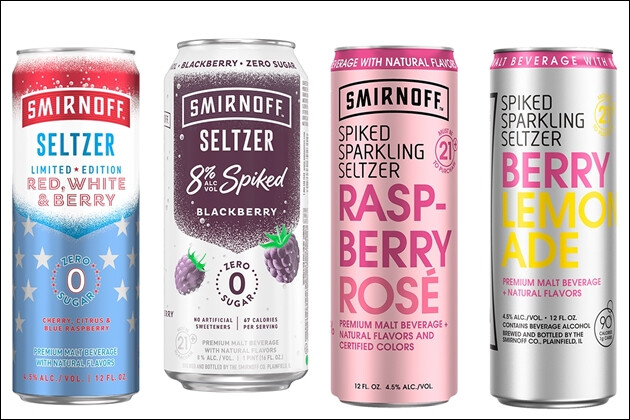
Bucheon, South Korea – The burgeoning global trend of hard seltzers has officially landed on South Korean shores with the exclusive launch of 'SWAY' at CU convenience stores nationwide. This move by the vodka soda brand signals a potential shift in the local beverage landscape, as South Korea's liquor industry takes note of the phenomenal success of these low-calorie, low-alcohol concoctions that have captivated Millennial and Generation Z consumers in the United States and beyond.
Hard seltzers, essentially flavored alcoholic sparkling water, have carved out a significant niche in the American beverage market since their explosive growth began around 2018. Their appeal lies in their perceived 'better-for-you' attributes compared to traditional alcoholic beverages like beer, wine, and sugary cocktails. Typically boasting lower alcohol content (around 4-6% ABV), significantly fewer calories (often around 100-120 per can), and often marketed as sugar-free or low in sugar, hard seltzers align perfectly with the growing consumer focus on health and wellness, even within the realm of indulgence.
The COVID-19 pandemic further accelerated the hard seltzer boom, as at-home consumption increased and consumers sought lighter, more refreshing options. The 'healthy drinking culture' that emerged, particularly among younger demographics, favored beverages that didn't carry the same caloric baggage or high alcohol content as traditional drinks. This trend has been well-documented in the US, with brands like White Claw and Truly becoming household names and spawning a plethora of competitors and innovative flavor variations.
Now, South Korea is witnessing its first major foray into this category with the introduction of SWAY. Marketed as a 'new concept low-alcohol beverage,' SWAY combines premium French vodka with real fruit juice and sparkling water. This distinguishes it slightly from some US hard seltzers that use fermented sugar or malt as their alcohol base. By positioning itself as 'lighter than beer and cleaner than a highball,' SWAY directly targets the younger generation seeking a refreshing and less intense alcoholic option.
SWAY's key selling points mirror the attributes that have driven the success of hard seltzers globally: a low calorie count of 110kcal per can, a moderate 4.5% alcohol by volume, and the absence of added sugar and artificial flavors. This trifecta is designed to appeal to health-conscious consumers and those who may not be regular drinkers but are looking for a light and palatable alcoholic beverage for social occasions or casual enjoyment. The initial launch features three popular fruit flavors: Grapefruit, Pineapple, and Peach, catering to a broad range of taste preferences. A limited-time promotional offer of a discount on the purchase of three cans during May aims to incentivize trial and adoption among consumers.
The term 'hard seltzer' itself, a combination of 'hard' (indicating alcoholic content) and 'seltzer' (referring to carbonated water), encapsulates the essence of the beverage. While the US market is saturated with various hard seltzer brands, South Korea has yet to establish a dominant player in this segment. SWAY's early entry positions it as a potential pioneer, aiming to capitalize on the latent demand for such beverages among Korean consumers who are increasingly influenced by global lifestyle trends and a growing awareness of healthier choices.
According to a representative from SWAY, the brand aims to be more than just a new product on the shelf. They envision SWAY as "a clear alternative that consumers have been seeking and waiting for in this era's drinking culture," emphasizing its suitability for moments when "a light and enjoyable can is desired." This messaging resonates with the core appeal of hard seltzers as a guilt-free indulgence.
SWAY's launch strategy extends beyond its exclusive availability at CU convenience stores. The brand has ambitious plans to build brand awareness and drive adoption through various experiential marketing initiatives, including participation in campus festivals, offline guerrilla events to generate buzz, collaborations with social media influencers to reach target demographics, and engaging social media content to build an online community. These efforts indicate a comprehensive approach to establishing SWAY as a leading brand in the nascent South Korean hard seltzer market and potentially shaping a new trend in the country's broader liquor industry.
The introduction of hard seltzers like SWAY in South Korea reflects the globalization of beverage trends and the increasing demand for lighter, healthier alcoholic alternatives worldwide. As South Korean consumers become more exposed to international drinking cultures and prioritize wellness, the hard seltzer category has the potential to experience significant growth. SWAY's early mover advantage and strategic marketing efforts will be crucial in determining its success in this evolving market. The coming months will reveal whether South Korea is ready to embrace the hard seltzer craze that has already swept across the United States and other parts of the globe.
[Copyright (c) Global Economic Times. All Rights Reserved.]






























